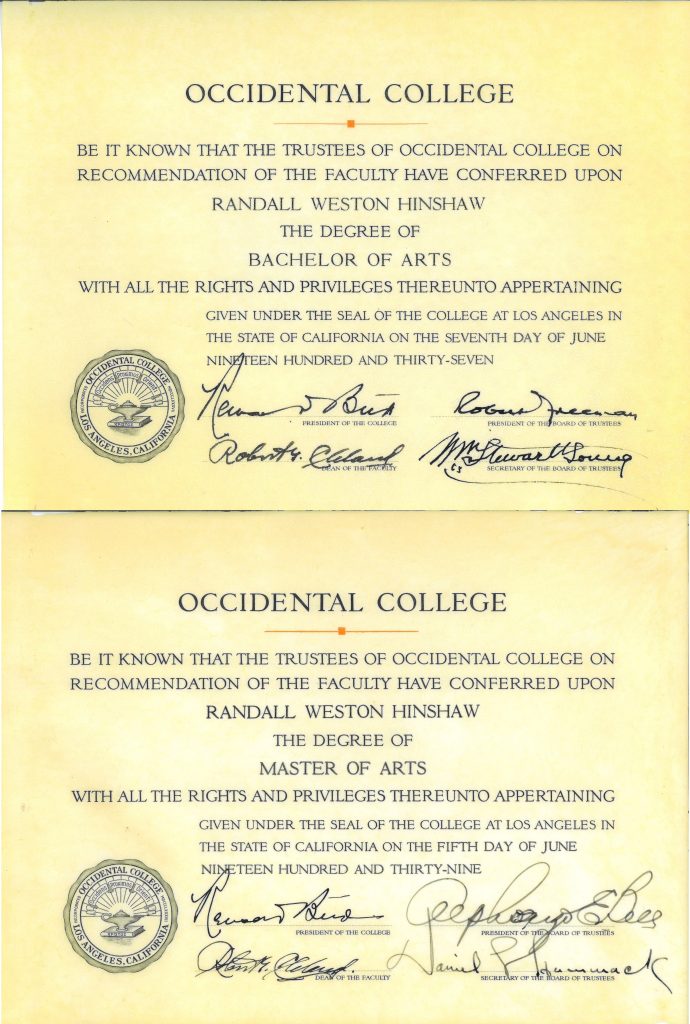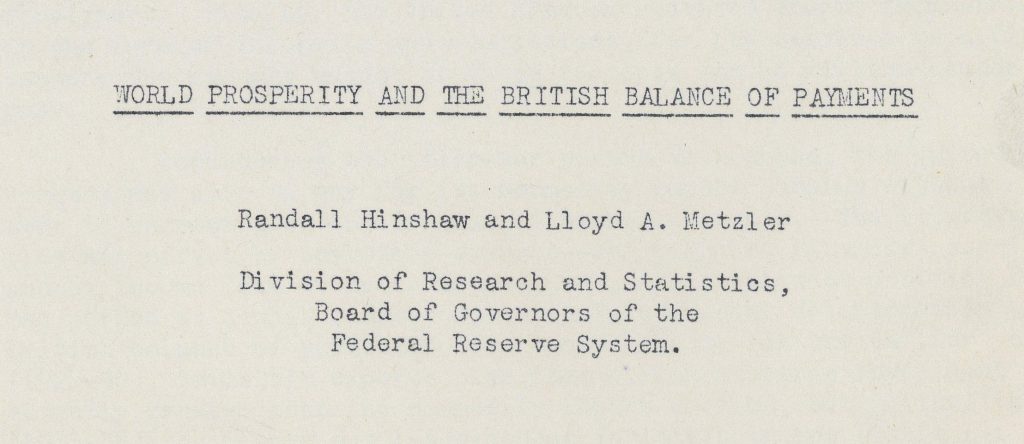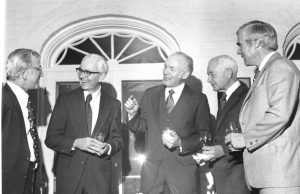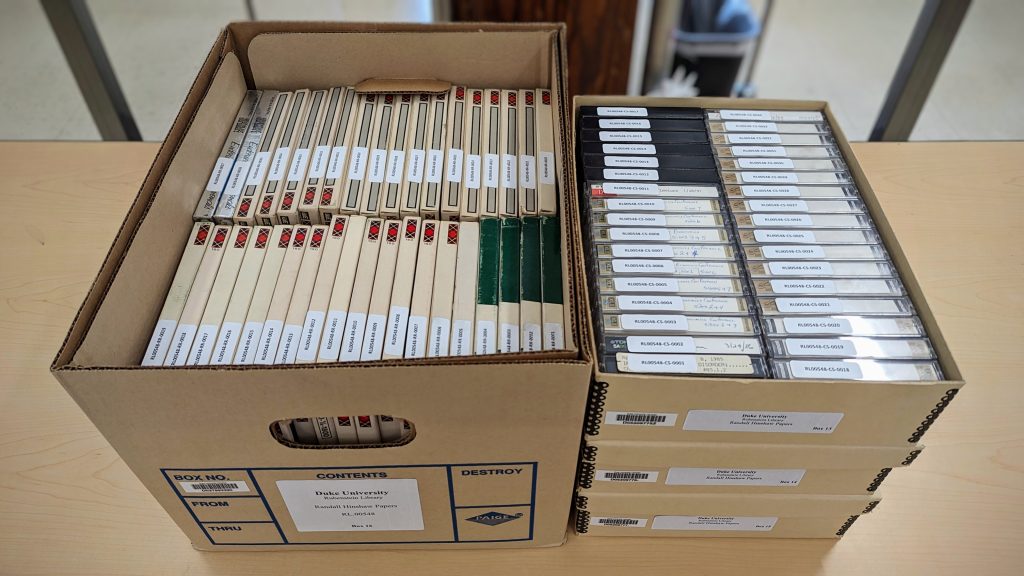Post contributed by Vincent Carret, Part-time Research Scholar for the Economists’ Papers Archive and Visiting Scholar at the Center for the History of Political Economy.
The Randall Hinshaw papers have been reprocessed, and four new boxes have been added. The collection is now fully described, and open for research. This blog post describes what is in the papers, by going over the life and work of Randall Hinshaw.
Randall Weston Hinshaw was born on May 9, 1915, in La Grange, Illinois. His father, Virgil Goodman Hinshaw, was chairman of the Prohibition Party National Committee (1912-1924) and a longtime advocate of the temperance movement (transcripts of his diaries in the collection document his advocacy at the turn of the century). Virgil and his family moved to Southern California in the mid-1920s, and Randall grew up in Pasadena with his five brothers. He attended Occidental College during the 1930s, graduating with a BA (1937) and MA (1939); he went on to Princeton University, where he obtained a PhD in economics (1944) after a lecturing stint at Harvard University in 1942-1943.

In the 1940s, Hinshaw worked at the Board of Governors of the Federal Reserve System, in the Division of Research and Statistics. A number of memoranda and unpublished manuscripts from this time can be found in the collection, including some co-authored with Lloyd A. Metzler and other economists. He then joined the successor agency working on implementing the Marshall Plan in Europe, and was stationed in Paris for a few years, during which he was involved in the intergovernmental negotiations on international payments, economic cooperation, and regional monetary agreements.

At the end of the 1950s, Hinshaw left government service and returned to academia in the US. After short-term visiting positions at Yale University, Oberlin College, and the Council on Foreign Relations, he secured a position in 1960 at the newly founded Claremont Graduate School, where he remained until his death in 1997, becoming a professor emeritus in 1982.

Hinshaw was well-connected with many leading economists in international trade through his education and through his role in the federal government. His association with the Bologna Center of Johns Hopkins University led to the organization of the first Bologna Claremont Monetary Conference in 1967. This conference brought together economists from academia, government, and the private sector to discuss the problems and evolution of the international monetary system.
Several boxes contain the correspondence related to the organization of the Bologna Claremont Monetary Conferences, which continued until Hinshaw’s death in 1997 . Among the economists who took part in the debates were Paul Samuelson, Robert Solow, Milton Friedman, Lionel Robbins, James Tobin, Jacques Rueff, Robert Triffin, and many others. Three boxes of audiocassettes and two boxes of reel-to-reel tapes contain audio recordings of most of these conferences, along with audio letters sent to Hinshaw by his family and colleagues.

This collection will be of interest to those researching the international monetary system from the 1940s to the 1990s, from the point of view of both government experts and academics. Although the conference proceedings have been published, the correspondence on their organization documents what happened behind the scenes. Some dramatic moments surface from these letters, for instance the London School of Economics protests in the late 1960s, which prevented Robbins from attending one of the conferences; other tensions between the participants illustrate the saying that academic rivalries are only as vicious as the stakes are small.


